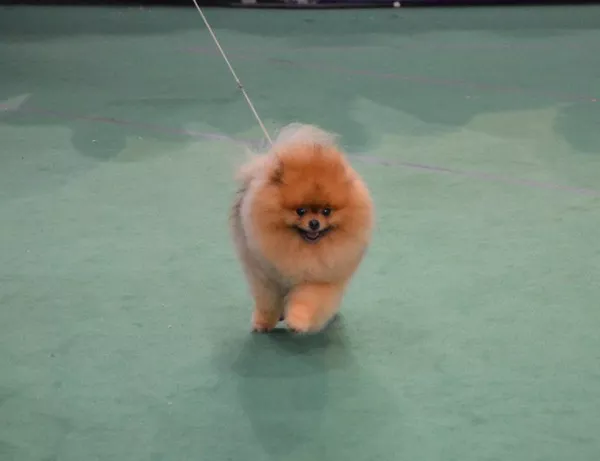Training your Pomeranian can be a rewarding experience, but it can also be challenging. As a small breed, Pomeranians can be prone to certain behavioral issues, such as barking, separation anxiety, and aggression. To effectively train your Pomeranian, it is important to avoid common mistakes that can hinder your progress and make the training process more difficult. In this article, we will explore the common mistakes to avoid when training your Pomeranian, including the importance of consistency, positive reinforcement, and socialization.
Common Mistakes to Avoid When Training Your Pomeranian:
Lack of Consistency: One of the most common mistakes that dog owners make when training their Pomeranian is a lack of consistency. Dogs thrive on routine, and it is important to establish a consistent training schedule and stick to it. This means training your Pomeranian at the same time each day, using the same commands, and rewarding good behavior consistently. Inconsistency can confuse your Pomeranian and make it more difficult for them to learn.
Using Punishment: Punishing your Pomeranian for bad behavior is not an effective training method. Punishment can cause fear and anxiety in your dog, and can actually make bad behavior worse. Instead, focus on positive reinforcement and rewarding good behavior. This means rewarding your Pomeranian with treats, praise, and affection when they exhibit good behavior, rather than punishing them for bad behavior.
Setting Unrealistic Goals: Another common mistake that dog owners make when training their Pomeranian is setting unrealistic goals. It is important to remember that training takes time and patience, and that your Pomeranian may not learn everything overnight. Set realistic goals and work towards them slowly and steadily. This means breaking down complex behaviors into smaller, more manageable steps, and rewarding your Pomeranian for each small success along the way.
Inconsistency with Rules: It is important to establish clear rules and boundaries for your Pomeranian, and to be consistent in enforcing them. If you allow your Pomeranian to get away with bad behavior sometimes, but not others, it can be confusing for your dog and hinder their training progress. Make sure that everyone in your household is on the same page when it comes to rules and boundaries for your Pomeranian.
Lack of Socialization: Socialization is an important aspect of training your Pomeranian. If your dog is not exposed to a variety of people, animals, and environments, they may become anxious or fearful in new situations. Make sure to socialize your Pomeranian from a young age to help them feel comfortable and confident in new situations. This means exposing your Pomeranian to a variety of people, animals, and environments, and rewarding them for exhibiting calm, confident behavior.
Overusing Treats: While treats can be an effective tool for training your Pomeranian, it is important not to overuse them. If you rely too heavily on treats, your Pomeranian may become dependent on them and lose motivation to obey commands without them. Use treats sparingly and gradually phase them out as your Pomeranian becomes more proficient in their training. This means using treats as a reward for good behavior, rather than as a bribe to get your Pomeranian to obey a command.
Not Providing Enough Exercise: Pomeranians are an active breed that require regular exercise to stay healthy and happy. If your Pomeranian is not getting enough exercise, they may become restless and bored, which can lead to bad behavior. Make sure to provide your Pomeranian with plenty of exercise and playtime to help them burn off excess energy. This means taking your Pomeranian for regular walks, playing games with them, and providing them with toys and puzzles to keep them mentally stimulated.
Not Being Patient: Training your Pomeranian takes time and patience. It is important to remember that your dog may not learn everything overnight, and that progress may be slow at times. Be patient with your Pomeranian and celebrate small successes along the way. This means recognizing and rewarding your Pomeranian for even small improvements in their behavior, and being patient when it comes to more complex behaviors.
Using Physical Force: Using physical force or punishment to train your Pomeranian can be harmful and counterproductive. It can cause fear and anxiety in your dog, and may lead to aggressive behavior. Instead, focus on positive reinforcement and reward good behavior. This means using treats, praise, and affection to reward your Pomeranian for exhibiting good behavior, rather than using physical force or punishment to correct bad behavior.
Not Seeking Professional Help: If you are struggling with training your Pomeranian, it may be helpful to seek professional help. A professional dog trainer can provide guidance and support, and can help you develop a training plan that is tailored to your Pomeranian’s individual needs. This means finding a qualified dog trainer who has experience working with Pomeranians, and who can provide you with the tools and resources you need to train your dog effectively.
Conclusion:
Training your Pomeranian can be a challenging but rewarding experience. By avoiding common mistakes, such as lack of consistency, using punishment, and setting unrealistic goals, you can help your Pomeranian become a well-behaved and obedient companion. And by focusing on positive reinforcement, socialization, and exercise, you can help your Pomeranian develop the skills and behaviors they need to thrive. Remember to be patient, consistent, and positive in your training efforts, and to seek professional help if you need it. With time, patience, and effort, you can help your Pomeranian become the best possible version of themselves.


